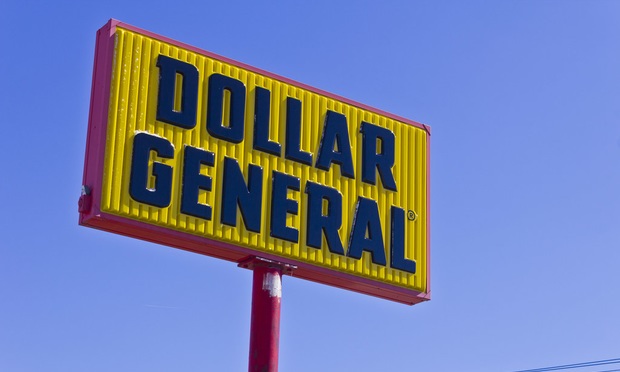Dollar stores had strong second-quarter sales as cap rates fell, according to the 2020 Net Lease Dollar Store Report from The Boulder Group.
Part of their success stems from the niche they carved out in small-town and rural America.
“The dollar stores have positioned themselves in small-town America as the local general store,” says Randy Blankstein, President of The Boulder Group. “They’ve had a good niche.
But there are some worries down the road for dollar stores. “I think the longer term concern is how long can they keep up this construction and development boom before it saturates the market,” Blankstein says. “That’s an open question.”
The 2019 numbers show the amount of supply hitting the market. Dollar General has 975 stores coming online, while Dollar Tree and Family Dollar are adding 320 and 226 stores, respectively, according to Blankstein.
“When Starbucks used to build stores across from each other in major metros, there was a point where it just became too many,” Blankstein says.
Dollar Tree, which acquired Family Dollar in 2015, mainly occupies stores in urban strip centers. But Family Dollar and Dollar General compete head to head in smaller markets. Blankstein says that these two companies are racing each other to get into smaller markets.
“Some of these markets are really small and if you are the first one in, the second company will think long and hard about coming in,” Blankstein says. “So there’s a little bit of a race to be the first in town, develop the habits and cause your competitor to think twice if they want to be a second one in.” Right now, Blankstein doesn’t see the new supply slowing. “It’s easier for them to keep the expansion going when their stocks are performing well, the stores are performing well, and they don’t have any trouble moving the real estate off their books and getting developers to build it for them,” Blankstein says.
Blankstein thinks the sector is set up to continue performing well over the next couple of years, but then there is uncertainty. “I think it’s clear sailing in the short to mid-term, but there are questions longer term,” Blankstein says. “If you’re an investor buying an asset with a 15-year lease, you have to think long term.”
While that 15-year lease may give investors pause about oversupply, in these tumultuous times, it is also a huge advantage.
“You can’t find a lot of 15-year corporate investment-grade deals for under $2 million,” Blankstein says. “There have been times where there has been too much supply and times where there is too little supply. But right now, people [investors] are gobbling up the supply.”
As these dollar stores are being built, expect investors to have a strong interest in buying them. In a recent poll conducted by The Boulder Group, the majority of net lease participants (62 percent) expect dollar store transactions to increase in the last two quarters of 2020 when compared to 2019. “New construction dollar stores will remain in the highest demand, and the national expansion plans of the dollar store retailers will keep up supply regardless of their heightened demand,” The Boulder Group said in the report.
